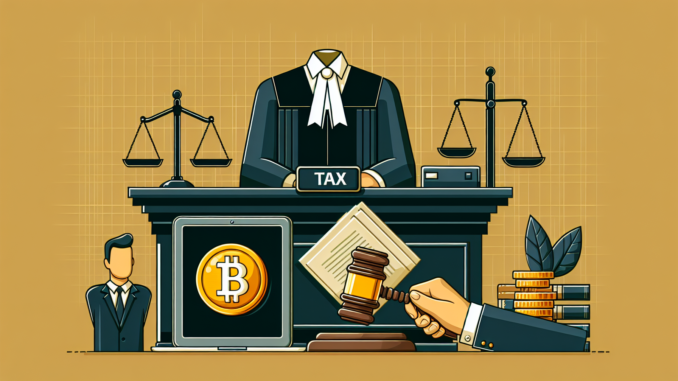
The world of cryptocurrencies is shaken by a groundbreaking decision that might have a decisive impact on the handling of assets in the digital space. A British court recently ordered a Bitcoin investor to hand over his private keys in a significant tax case. This decision raises questions and could have substantial legal and financial consequences.
Background of the Decision
The case involves Adrian Maranhao, a UK-based Bitcoin investor, who was asked by the UK tax authorities (HMRC) to declare his crypto assets. However, the matter took an extraordinary turn when HMRC suspected that Maranhao had not properly declared all of his assets. To ensure transparency and establish a tax precedent, the authority obtained a court order requiring Maranhao to disclose his private keys to control his Bitcoin holdings.
The Significance of This Development and Details of the Case
The significance of this decision lies in the first court-ordered handover of private crypto keys for tax purposes. Private keys play an immense role in the cryptocurrency space as they enable access to a user’s digital assets. They represent the last level of security against unauthorized access. In Maranhao’s case, the court confirmed this request, which could potentially have far-reaching consequences for the entire crypto community and its handling of cryptographic keys.
Potential Impact on the Crypto Market
This ruling could signify the beginning of a new era in the handling of cryptocurrencies and their regulations. The decision shows that tax authorities are increasingly able to use legal means to enforce their interests, even in an area traditionally known for anonymity and decentralized control. This development might force crypto investors to manage their tax disclosures more carefully and prepare for potential legal consequences if transparency is lacking.
The decision could also impact the overall acceptance and trustworthiness of cryptocurrencies. On one hand, it could encourage investors to regulate their crypto assets and safeguard against potential legal issues. On the other hand, it might raise concerns about the inherent privacy and security of these digital currencies.
Reactions and Assessments From Experts
Reactions to this ruling are mixed. Some see it as a necessary step to combat tax evasion and secure state influence over the manageable but rapidly growing cryptocurrency market. Critics, however, argue that such a ruling threatens the integrity of the fundamental principles of cryptocurrencies, especially decentralization and anonymity. Experts warn of potential deterrent effects on potential investors as well as excessive government intervention in the decentralized space.
Conclusion: A Turning Point for the Crypto Community?
This tax precedent could be seen as a turning point in the relationship between regulatory authorities and the crypto world. The clear message to the crypto community is that the legal frameworks and accountability for crypto assets must be taken as seriously as for traditional financial investments. It is crucial that investors respond promptly to this development, adjust their strategic planning, and ensure that they meet all legal obligations to avoid legal troubles.
With this decision, the playing field for dealing with cryptocurrencies has been legally and fiscally redefined. It remains to be seen how the market will evolve further and what additional steps can be expected from regulatory authorities worldwide. The crypto community faces the challenge of engaging with the new requirements while aiming to preserve the core principles of decentralization.
Leave a Reply